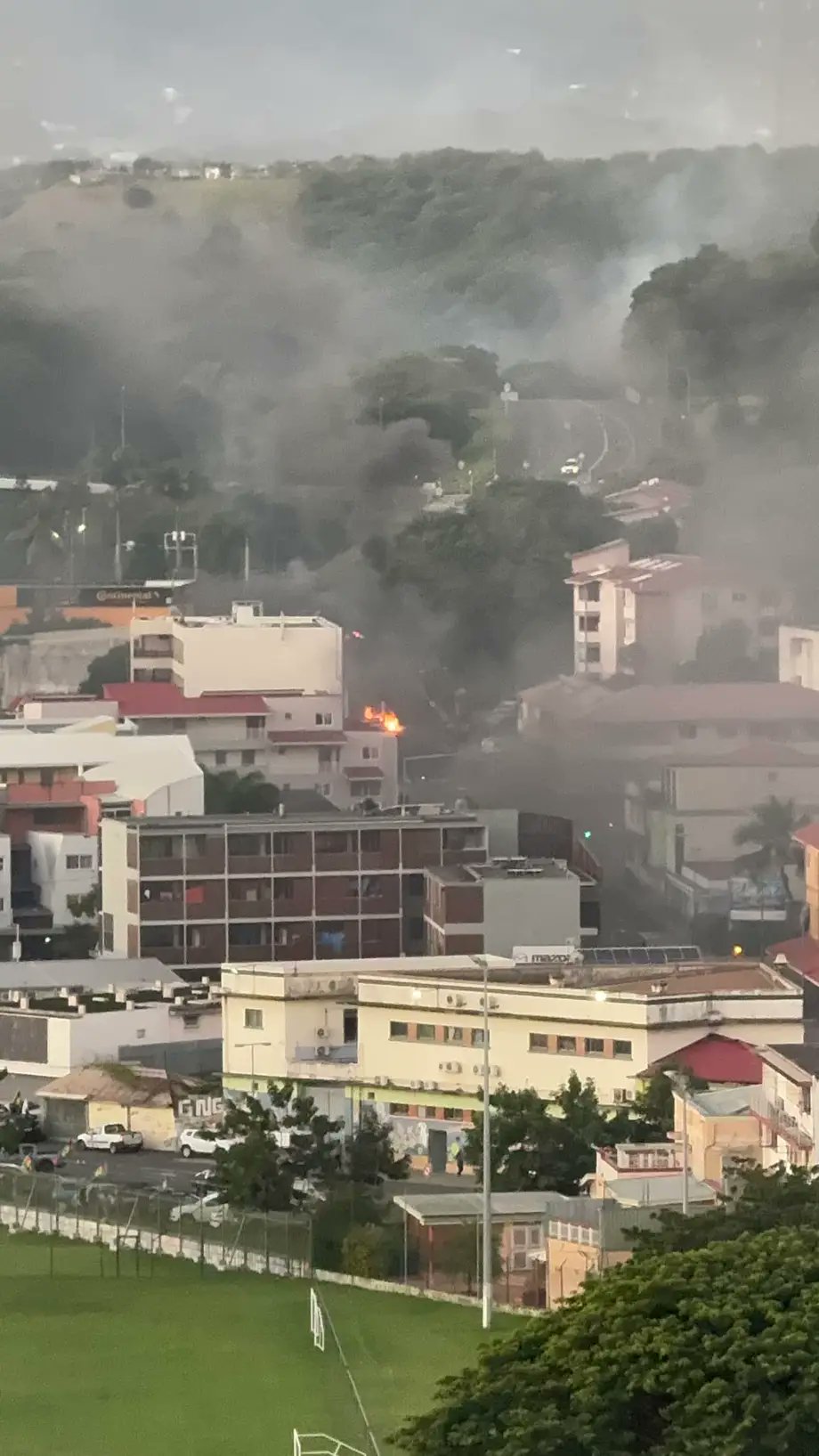New Caledonia has on Monday gone through yet another day of tensions, a few hours ahead of a vote in Paris’s National Assembly on a government-tabled Constitutional amendment.
This amendment would “unfreeze” the list of eligible voters at local elections.
During most of the day, demonstrations, marches and confrontations with security forces have spread throughout the French Pacific entity, with hot points in the suburbs of the capital Nouméa, especially the village of Saint Louis and nearby Mont-Dore.
Several vehicles were burned on the roads.
By Monday evening, several violent confrontations were still taking place between pro-independence militants and police.
At Nouméa’s contrail prison, Camp Est, three penitentiary staff were briefly taken hostage by inmates, as part of a botched mutiny within the jail.
The hostages were later released.
Public services and schools in the affected areas announced they were sending staff and students home on Monday, and that they would remain closed for the next few days.
Marches were organised by a pro-independence “field action coordination committee” (CCAT) close to the Union Calédonienne party (UC), one of the main components of the Kanak Socialist National Liberation Front (FLNKS).
CCAT said in a release this was ‘stage two and a half’ (out of three) of its mobilisation.
It involved marches in New Caledonia’s Loyalty Islands group, including Lifou, where at least 1000 people were estimated to have taken part in demonstrations.
French High commissioner Louis Le Franc, on public broadcaster La Première, announced he has called for reinforcements from Paris to maintain law and order.
This included police, gendarmes and members of its SWAT group GIGN (Gendarmerie National Intervention Group) and RAID.
Law enforcement officers were hurt by stones and shots were fired from within Saint Louis on Monday, he said.
He said some of the weapons used by “youths” were high calibre hunting guns.
Le Franc also warned if, in future, law enforcement officers were targeted again, they would consider themselves in a situation of “legitimate defence” and would retaliate.
“So I’m warning these young people… They should stop using weapons against gendarmes,” he said.
“I don’t want to see dead people in New Caledonia, but everyone should take their responsibility.
“I have also asked the custom chiefs (of Saint Louis) to do their job. They have an influence over these young people; they should restore calm.”
He told journalists most delinquents seemed to be under the influence of alcohol.
Le Franc also announced for the next 48 hours, he had placed a ban on port and transport of weapons and ammunition, as well as another ban on the sale of liquor.
“Thirty-five gendarmes have been injured (Monday) by stones and gunshots of large calibre, semi-automatic hunting guns. These are about two hundred aggressive youths,” he told the public media.
While appealing for calm and respect for public order, he also strongly condemned the blockades and said the police and gendarmes’ first mission was to restore freedom of movement at blockaded points.
About 15 individuals were taken into custody on Monday, he said.
New Zealander Mike Lightfoot, currently holidaying in Noumea, told Newstalk ZB there have been many unsettling moments on the island lately with the election coming up.
“Heading down the coast back into Noumea there was rioting on the sides of the streets,” he said.
“It seemed peaceful, but the roads were blocked so we had to come through a lot of fires going and burning tyres.”
Lightfoot said the unrest became more serious as they came into Noumea.
He said a doctor advised them to be very careful.
“There were fires everywhere, major roadblocks and we certainly heard gunshots.”
Lightfoot also said their flight has been cancelled and the airport has been closed.
“We don’t feel safe and have been advised to stay in the complex.”
International media on the ground described burning vehicles, looting and clashes between demonstrators and the police.
At the entrance to the New Caledonian capital, a large factory, specialising in bottling, was the victim of an arson attack and completely ravaged by flames on Monday around 10pm local time, Agence France-Presse (AFP) said.
Several supermarkets were looted in Nouméa, and in the neighbouring towns Dumbéa and Le Mont-Dore at least two car dealerships were engulfed in flames, AFP also noted.
A statement from the island’s High Commissioner said they strongly condemn the public road blockages and the attacks on the police stations.
“The High Commissioner has given the instruction of the progressive taking down of the blockages and those involved in these illegal actions are called out.
“The High Commissioner has called for calm and respect for the public order. The majority of security forces are mobilised to assure the population’s security. No misbehaviour will be tolerated.”
Last week, the French National Assembly in Paris debated altering the rules of eligibility to vote in local elections.
The proposed changes would move the electoral role from allowing those who resided in New Caledonia before November 1998 to allowing any French citizens who have lived in New Caledonia for 10 consecutive years to vote.
Pro-independence parties said it would affect their representation.
In an apparent wish to give more time for a local, inclusive agreement to take place, French President Emmanuel Macron’s entourage told French media at the weekend he would not convene the French Congress (a special gathering of both Houses of Parliament) for “several weeks”.
The French President’s office was also ready to call on all of New Caledonia’s political parties (both pro-France and pro-independence) for a roundtable in Paris by the end of May, in order to find an agreement on New Caledonia’s long-term political future.














